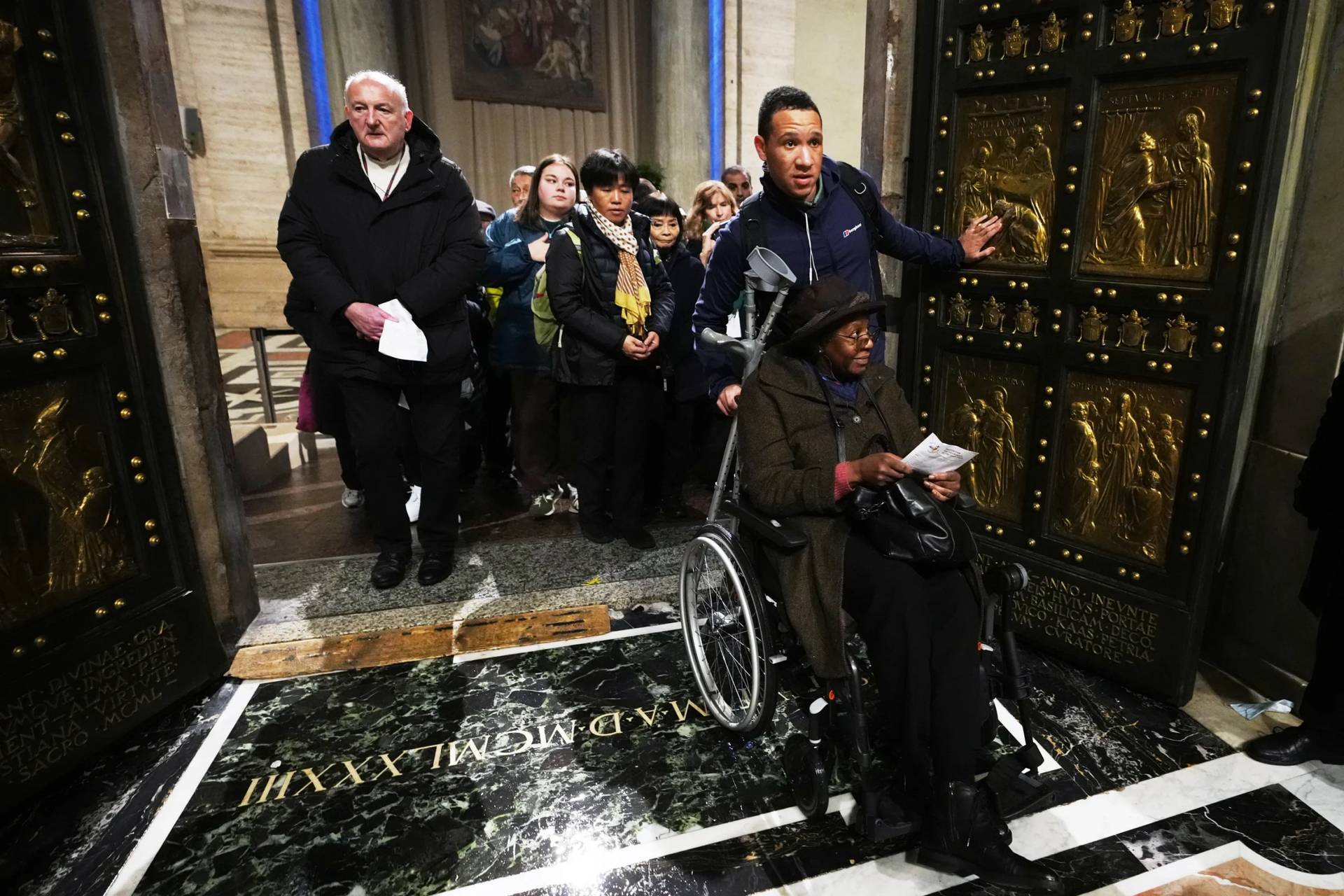In an unusual public spat, the Catholic diocese of Peoria, Illinois, is accusing the Rochester, New York, diocese of trying to “sabotage” the beatification of Archbishop Fulton Sheen.
Sheen, who before his death in 1979 was famous for his radio and TV preaching, had been scheduled to be beatified — the last step before sainthood — in a ceremony in Peoria on Dec. 21.
However, the Vatican recently took the rare step of indefinitely postponing the ceremony at the request of the Rochester diocese, which said more time was needed for further investigations.
Sheen was Rochester’s bishop from 1966 to 1969, and the diocese there sought the delay “to allow for further review of his role in priests’ assignments.”
A top official of the Peoria diocese, Monsignor James Kruse, says those concerns focus on assignments of priests in Rochester who were accused of sexual misconduct. In a lengthy statement published this week, Kruse said the Peoria diocese thoroughly investigated two of those cases and found no wrongdoing by Sheen.
Kruse complained that the Rochester diocese is now suggesting there are other cases that merit investigation, without providing details about them.
The Rochester Diocese’s statement about “an undisclosed ‘two or more’ cases is both unjust and a regretful smear of Sheen,” Kruse wrote. “This was not really an act of caution, but appears to simply be another act of sabotage.”
Responding to Kruse’s accusation, the Rochester diocese told The Associated Press on Thursday, “This is absolutely a false statement and lacks an appreciation for our diocese’s genuine concern for Archbishop Sheen’s cause.”
The statement noted that the decision to delay the beatification was made by the Vatican, not by the Rochester diocese.
The Rochester diocese is among many across the U.S. deeply entangled in the Catholic Church’s sex-abuse crisis. In September, it filed for bankruptcy protection amid a wave of sex-abuse lawsuits, becoming the first of New York State’s eight dioceses to do so. New York passed a law this year giving victims of childhood sex abuse one year to file lawsuits that had previously been barred because the allegations — many dating back to the 1960s and 1970s — were too old.
The new controversy over Sheen is the latest to bedevil his beatification cause, which was stalled by an expensive, years-long legal battle between Sheen’s relatives in Peoria and the New York City archdiocese over his final resting place.
Sheen was interred under the altar of New York’s St. Patrick’s Cathedral’s after his death. His remains were returned to Peoria from New York in June after a court ruled Sheen’s niece could bury him there.
In July, Pope Francis approved a miracle attributed to Sheen, clearing the way for beatification — one step short of sainthood.
Sheen was ordained in Peoria in 1919, and the local diocese has invested much time and energy campaigning for his sainthood.
Peoria Bishop Daniel Jenky asked Catholics to participate in a novena — a series of special prayers on nine successive days — to “petition God unceasingly” that the sainthood process move forward.
The diocese said the novena, which started Thursday, was intended to “move heaven as well as instill hope to all those saddened and disappointed by the delay.”
Amid the Sheen controversy, Francis encouraged members of the Vatican’s saint-making office to continue with their rigorous investigations into lives of candidates, saying their job is to “clear away every ambiguity and doubt” that a person deserves to be a saint.
Francis didn’t mention Sheen by name during his previously scheduled audience Thursday with members of the Congregation for the Causes of Saints, who vet all saint-making cases.
But Francis noted that saints aren’t perfect, and aren’t some unreachable species of human beings.
Rather, he said, “They are people who tirelessly lived their daily lives with success and failure, finding in the Lord the strength to always get back up and continue the path.”
The Vatican hasn’t commented on the delay of Sheen’s beatification.
Associated Press writers Nicole Winfield in Rome and Carolyn Thompson in Buffalo, New York, contributed to this report.
Crux is dedicated to smart, wired and independent reporting on the Vatican and worldwide Catholic Church. That kind of reporting doesn’t come cheap, and we need your support. You can help Crux by giving a small amount monthly, or with a onetime gift. Please remember, Crux is a for-profit organization, so contributions are not tax-deductible.














